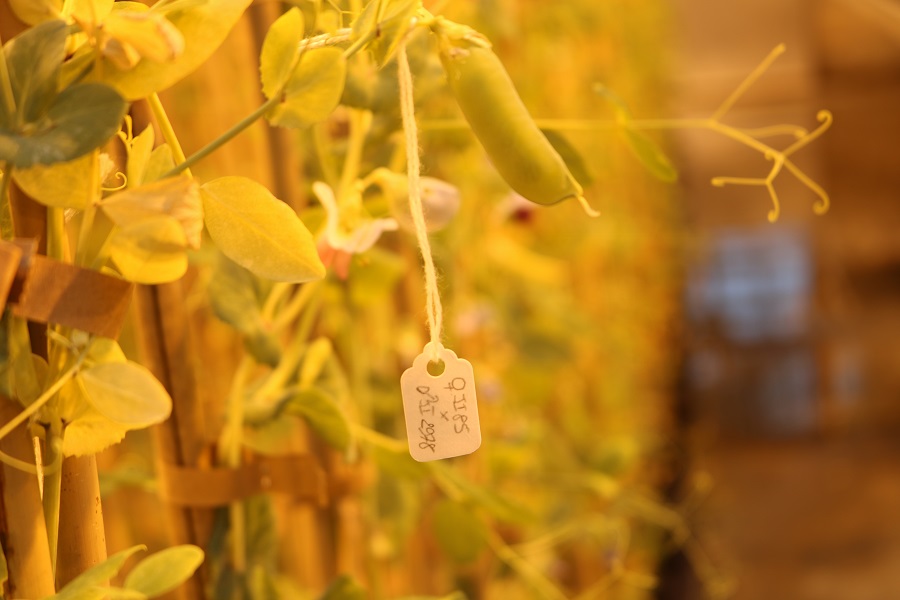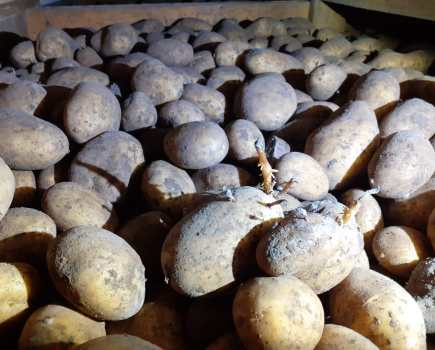New legislation will be put in place to cut unnecessary red tape for gene editing, helping farmers to grow more resistant, nutritious and productive crops, according to the latest announcement from Defra.
The rule changes, made possible by the UK’s departure from the EU, will mean that scientists across England will be able to undertake plant-based research and development, using genetic technologies such as gene editing, more easily.
According to Defra, the rules will apply to plants where gene editing is used to create new varieties similar to those which could have been produced more slowly through traditional breeding processes and will unlock research opportunities to grow crops which are more nutritious, and which require less pesticide use.
Outside the EU, the UK is able to cut red tape and set better rules and regulations that work in the best interests of British farmers and scientists, says Defra. It adds that the legislation is the first step towards adopting a more scientific and proportionate approach to the regulation of genetic technologies, which will allow the UK to further unlock innovation using these technologies.
“New genetic technologies could help us tackle some of the biggest challenges of our age – around food security, climate change and biodiversity loss,” says minister for agri-innovation and climate adaption, Jo Churchill.
“Now we have the freedom and opportunity to foster innovation, to improve the environment and help us grow plants that are stronger and more resilient to climate change. I am grateful to the farming and environmental groups that have helped us shape our approach, and I look forward to seeing what we can achieve.”
All scientists undertaking research with genetic technologies will have to continue to notify Defra of any research trials. For now, gene edited plants will still be classified as genetically modified organisms and commercial cultivation of these plants, and any food products derived from them, will still need to be authorised in accordance with existing rules.
Simplifying requirements
Responding to the announcement, the British Society of Plant Breeders (BSPB) chief executive, Samantha Brooke, said: “New legislation laid before Parliament will simplify requirements for our members to undertake plant-based research and development, using genetic technologies such as gene editing, more easily.
The rules will apply to plants where gene editing is used to create new varieties similar to those which could have been produced more slowly through traditional breeding processes and will unlock research opportunities to grow crops which are more nutritious, and which require less pesticide use.
According to Samantha, this is an important next step towards anticipated regulatory divergence from the EU rules that classified all gene edited plants as genetically modified organisms (GMOs), even when the variety could have occurred naturally or through conventional breeding methods.
Existing techniques in advanced gene editing such as CRISPR-Cas9 have shown improvements in the speed and precision of crop breeding, she added. “This has opened up significant opportunities to keep pace with demands for increased agricultural productivity, resource-use efficiency, more durable pest and disease resistance, improved nutrition and resilience to climate change.
“Current rules inherited from the EU differ from how gene editing techniques are regulated in other parts of the world, such as the United States, Argentina, Brazil, Canada, Australia, and Japan. This announcement is a small but important step towards more proportionate and enabling regulation, in line with the Government’s pledge to liberate our biosciences sector.
“We look forward to an early announcement from Defra on plans to introduce the new primary legislation needed to deliver on the Government’s commitment, freeing up the genetic innovation to develop more resilient, nutritious and higher-yielding crops with a reduced footprint on the environment,” she concluded.




